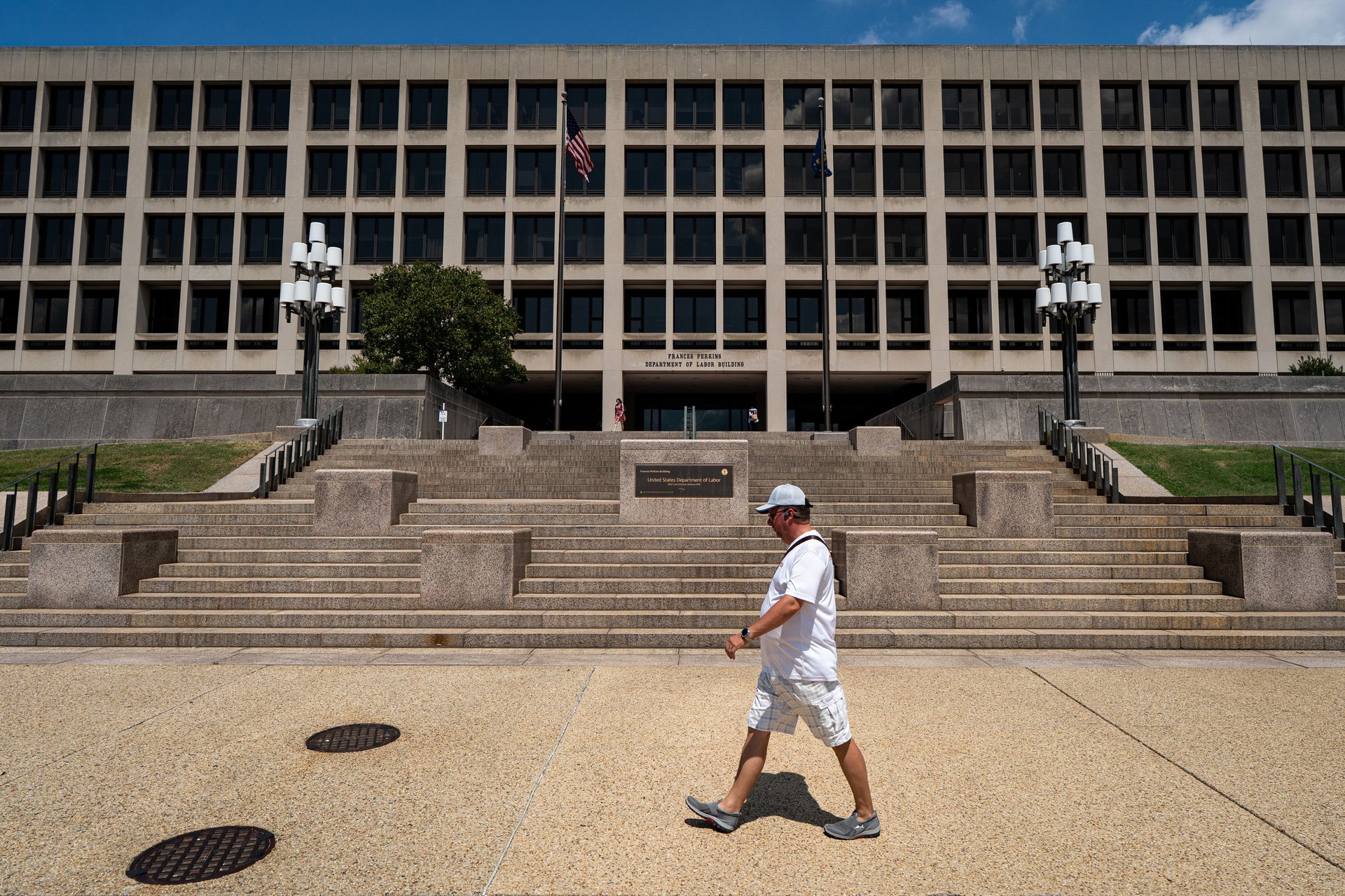A government shutdown could make America's economic data problem even worse
If the U.S. government shuts down after Sept. 30, that could delay the release of monthly jobs and inflation reports

The US Department of Labor headquarters in Washington, DC, US, which houses the Bureau of Labor Statistics. (Al Drago/Bloomberg via Getty Images)
The U.S. government could very well shut down within a week. That may affect its ability to collect and issue key economic data providing a look into the state of the economy.
Suggested Reading
A recent analysis from Wells Fargo raised the prospect of a "data vacuum" should Congress fail to fund the federal government past Sept. 30. Employees at the Bureau of Labor Statistics involved in gathering and processing key data reports are deemed "nonessential" during a shutdown.
Related Content
During the 16-day government shutdown in Oct. 2013, the monthly jobs report along with monthly inflation data were delayed by two weeks, Wells Fargo analysts noted. The agency's closure prompted collection and publication problems that spilled into the next month as well.
In the last 35-day government shutdown of 2018-19, data delays were limited to reports issued by the Department of Commerce on GDP, personal income, and spending. Those reports were delayed by about a month. BLS reports hadn't been affected because Congress had stepped in and funded the agency ahead of time. Data quality didn't deteriorate in either shutdown.
The monthly jobs report is scheduled for release on Oct. 3, followed by the inflation report on Oct. 15. The BLS did not immediately respond to a request for comment on their ability to stick to their schedule in the event of a shutdown.
The BLS has faced additional scrutiny since President Donald Trump fired agency chief Erika McEntarfer in August, following standard data revisions displaying anemic job growth this summer.
Republicans and Democrats in Congress have spent the past month sparring over government funding. On Wednesday evening, the White House warned of mass firings of federal employees if Congress doesn't reach an agreement on funding the government.
Republicans are demanding Democrats accept a clean, short-term spending patch that keeps the government funded through Nov. 21. Democrats, though, are balking at lending their votes without an extension of Affordable Care Act insurance subsidies that expire at year's end.
